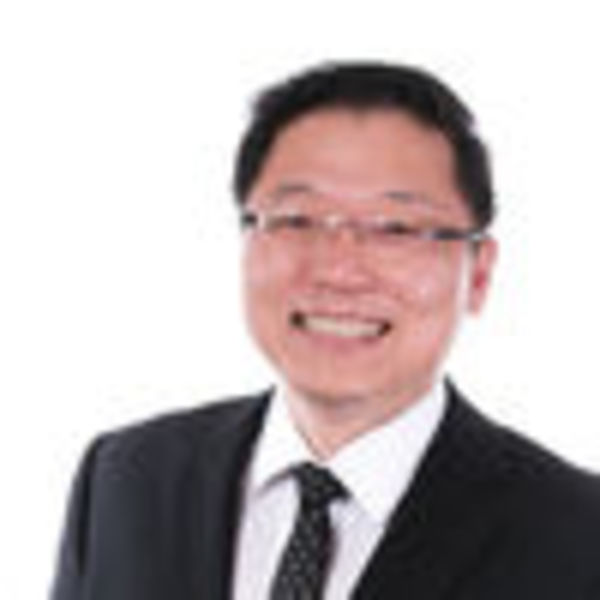
Enhancing Whole-Person Fertility Care with Complementary Therapies
From acupuncture to fertility massage, holistic treatments are gaining ground in IVF care as more couples are exploring complementary therapies for a more personalised approach to reproductive health.
Complementary therapy refers to various treatments used together with conventional medical treatments to support and enhance overall health and well-being. However, these therapies are not intended to replace medical procedures but to complement and potentially improve outcomes and reduce stress.
“The idea of using complementary therapy to help with fertility and IVF is not completely new. For a long time, people have used things like acupuncture, herbal medicine, and yoga to support their fertility and overall health,” Dr Roland Chieng, Medical Director, Virtus Fertility Centre Singapore, says.
“What is new is that more fertility clinics and doctors now accept and integrate these therapies into their fertility treatment plan to help reduce stress, improve hormone balance, and feel more in control during their journey,” he adds.
More research shows that some therapies, like acupuncture[1], might help with IVF treatment. Hence, more doctors see the value in combining medical care with natural or holistic support. While complementary therapy has been around for a long time, using it together with IVF in a clinical setting is a growing idea.
Growing popularity
A 2023 study published in Reproductive Biology and Endocrinology[2] found that over 80% of patients seeking fertility treatment reported using at least one integrative medicine modality, such as acupuncture, yoga, massage, meditation, or herbal supplements.
Several factors contribute to this growing trend.
“Many individuals and couples are seeking a more comprehensive approach to fertility treatment that addresses not only the physical aspects but also the psychosocial benefits. Complementary therapies focus on treating the whole person, providing patients with a sense of empowerment and control during a stressful journey[3],” Dr Chieng explains.
Cultural backgrounds and personal beliefs significantly influence the choice to incorporate complementary therapies[4]. For instance, the same study noted higher usage rates among individuals identifying with certain religious affiliations.
Finally, some couples turn to complementary therapies for relaxation, hormonal balance, and overall health. Additionally, ease of access and awareness of these therapies have made them a common choice for those seeking to enhance their fertility journey.
Is it for everyone?
Complementary therapies can be helpful for many people going through fertility treatment, but they may not be suitable for everyone.
“If you're taking fertility medication or hormone treatments, it's important to be careful. Some herbal remedies or supplements can affect how your medication works or interfere with your hormone levels. You should always check with your fertility specialist before adding anything new,” Dr Chieng advises.
People with certain health conditions—like bleeding disorders, autoimmune diseases, or other chronic illnesses—should also be cautious. Therapies like acupuncture, deep massage, or certain herbal supplements might not be safe.
It's also important that your chosen therapist is qualified and experienced. Seeing someone who is not properly trained or licensed can be risky, especially when dealing with something as sensitive as fertility.
“Some physical treatments—like strong massage or heat-based therapies—might not be safe during key stages of IVF, such as when you're stimulating ovulation or after an embryo transfer,” he adds.
The key is always to consult your doctor for advice on what’s safe and what to avoid.
Common Complementary Therapies in IVF
1. Acupuncture is an ancient Chinese practice that involves inserting thin needles into specific points on the body. It is believed to improve blood flow to the reproductive organs, balance hormones, and reduce stress.
“As a certified acupuncturist and Western medicine doctor, I see both approaches as complementary rather than separate. Western medicine helps with clear diagnosis and targeted treatments, while acupuncture supports the body’s natural healing, reduces stress, and improves overall well-being,” Dr Chieng explains.
“In fertility care, for example, I will use the usual Western medicine standard of hormone tests and IVF planning, while using acupuncture to boost blood flow, regulate cycles, and help patients feel calmer and more supported emotionally,” he adds.
According to Dr Chieng, knowing when and how to use each approach safely and effectively is key. Together, they could offer a more complete and personalised way to care for patients physically, mentally, and emotionally.
2. Dietary Supplements
Supplements—whether herbal or non-herbal—can support fertility, but they must be used with caution.
“Some herbal remedies may interfere with fertility medications or hormone levels, especially during IVF. Likewise, non-herbal supplements like folic acid, CoQ10, or vitamin D can be beneficial, but not everyone needs the same ones,” Dr Chieng advises.
Before starting any supplement, always speak with your fertility doctor. What works for one person may not be right for another, and timing is important—some supplements are not safe at certain stages of treatment or pregnancy.
3. Fertility Massage Therapy
Fertility massage helps counter this by targeting key acupressure points around the reproductive organs, encouraging relaxation, lowering cortisol, and improving blood circulation—two vital components for supporting reproductive health.
“The principle behind it is similar to acupuncture as it improves 'QI' and strengthens kidney and liver function. Acupuncture and our therapy can work hand in hand, and we see better outcomes from it,” Ms. Angelia Ng, Founder of Babies Bliss Fertility Wellness, explains.
The fertility massage method at Babies Bliss combines acupressure, lymphatic drainage, and reflexology. The massage techniques, targeted acupressure points, and essential oil blends are customised according to each woman’s menstrual cycle, health condition, and unique fertility needs.
“Someone during IVF will receive a different message compared to another person who simply wants to optimise her body constitution for egg freezing, for instance. Likewise, if it is a massage for relaxation, we consider the cycle phase and IVF progress,” she explains.
Angelia recommends that fertility massage starts at least three months before the egg retrieval process. Typically, their program can last from 3 to 8 months, with each session occurring weekly.
Fertility massage has gained popularity for its benefits in both natural conception and IVF support. Angelia’s clients reported improved ovulation signs, reduced menstrual discomfort, and healthier follicle development. For those undergoing IVF, it has helped to reduce bloating and water retention, improve sleep, support egg quality and endometrial receptivity, and lower inflammation. The sessions can be done during stimulation and before embryo transfer.
Conclusion
As fertility journeys can be complex and emotionally demanding, many individuals and couples are turning to complementary therapies for a more holistic and personalised approach. While these therapies do not replace medical treatment, they can enhance physical well-being, reduce stress, and support overall reproductive health when used mindfully and under clinical guidance. As always, consult your fertility specialist if you are exploring comprehensive therapy.
[1] Pinar Gursoy Guven, Yasemin Cayir, Bunyamin Borekci, Effectiveness of acupuncture on pregnancy success rates for women undergoing in vitro fertilization: A randomized controlled trial, Taiwanese Journal of Obstetrics and Gynecology, Volume 59, Issue 2, 2020, Pages 282-286, ISSN 1028-4559, https://doi.org/10.1016/j.tjog.2020.01.018.
[2] Sehgal, S., Dyer, A., Warren, C. et al. Integrative medicine utilization among infertility patients. Reprod Biol Endocrinol 21, 71 (2023). https://doi.org/10.1186/s12958-023-01121-6
[3] LoGiudice JA, Massaro J. The impact of complementary therapies on psychosocial factors in women undergoing in vitro fertilization (IVF): A systematic literature review. Appl Nurs Res. 2018 Feb;39:220-228. doi: 10.1016/j.apnr.2017.11.025. Epub 2017 Nov 21. PMID: 29422163.
[4] Sehgal, S., Dyer, A., Warren, C. et al. Integrative medicine utilization among infertility patients. Reprod Biol Endocrinol 21, 71 (2023). https://doi.org/10.1186/s12958-023-01121-6
